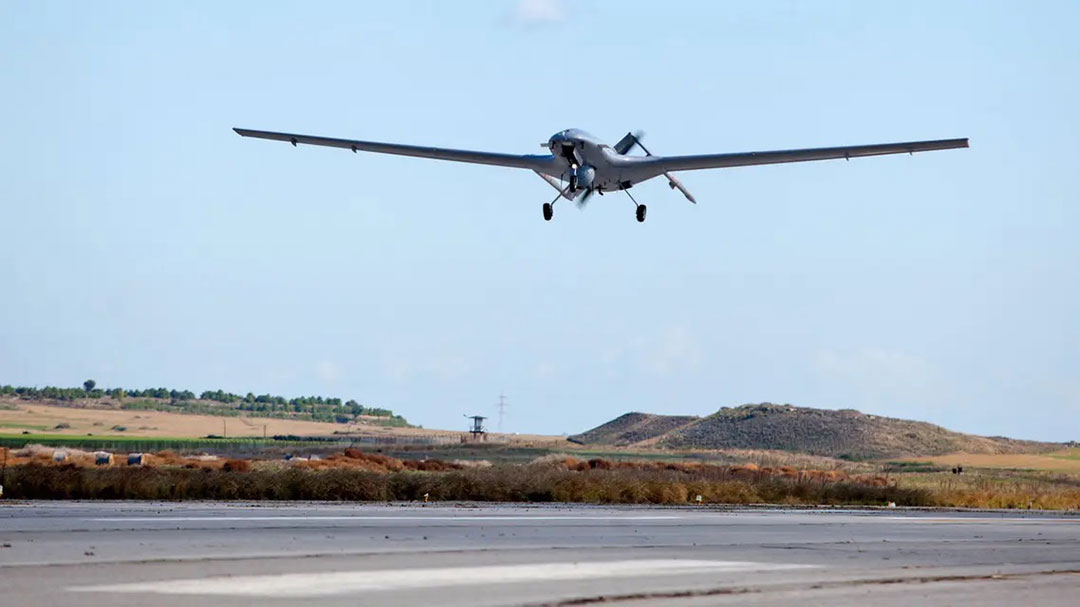Libyan Attack May Have Introduced AI-Powered Weapons to Africa’s Battlefields
ADF STAFF
The use of a self-guided drone on the Libyan battlefield may have been a first in Africa. Now experts are voicing concern about their expanded use.
In March 2020, as fighters loyal to Libyan Field Marshal Khalifa Haftar retreated from a battle, their pursuers included a self-directed drone launched by the then-Government of National Unity. The craft was powered by artificial intelligence (AI) and programmed to attack on its own.
As outlined in a United Nations report published a year later, the attack by the Turkish-made STM Kargu-2 drone may have been the first recorded use of a completely self-directed airborne weapon on the battlefield in Africa. It’s unclear from the report whether the drone attack killed anyone.
“If anyone was killed in an autonomous attack, it would likely represent an historic first known case of artificial intelligence-based autonomous weapons being used to kill,” Zachary Kallenborn wrote in The Bulletin of the Atomic Scientists.
AI has been growing across the continent in recent years, powering everything from anti-poaching patrols in Malawi to license-plate readers in South Africa, to surveillance software in Uganda.
Across its many uses, AI remains focused on tasks such as pattern recognition and predicting behavior. In Malawi, AI-powered drones can tell the difference between people and animals. Several global communications companies offer facial recognition technology that can track individuals throughout a community.
Off-the-shelf drones are increasingly popular with governments and insurgents across the continent for tasks ranging from crowd control to assault planning. So far, most have human pilots and decision-makers behind them.
As AI and drone technologies merge, experts worry the continent’s future conflicts could look more like the Libyan attack.
“Although other experts have instead classified the Kargu-2 as a loitering munition, its use in combat in northern Africa nonetheless points to a future where AI-enabled weapons are increasingly deployed in armed conflicts in the region,” Marian Okpali, a cyber policy researcher at the Africa Center for Strategic Studies wrote recently.
Loitering munitions have been described as a kind of airborne land mine, capable of remaining in position above a target and waiting for a specific set of conditions to trigger an attack. Unlike conventional land mines, drones are limited by their flight time.
While military-level drones can fly themselves to a site, choose targets and kill without human input, until the Libyan attack, there had been no reports of that actually happening on the battlefield.
Even as international organizations call for banning such weapons, demand is driving manufacturers to produce more of them. South Africa’s Paramount Group has joined makers in China, Turkey and Israel in promoting their own autonomous airborne weapons.
“The N-Raven Series can be critical to the successful execution of modern fire missions, with swarm capabilities offering support for Multi-Domain Operations,” the Paramount Group reports.
Like Turkey’s STM Kargu-2, South Africa’s N-Raven drones can share information and coordinate, leading to swarm attacks as multiple drones converge on a single target. The problem, according to Kallenborn, is that inaccurate information from one drone can create a cascading disaster as drones swarm a target after sharing bad data.
More than a dozen African countries already use Turkey’s Bayraktar TB2 drones, which are autonomous but monitored by operators on the ground.
With the exception of the Libyan attack, most drones used on Africa’s battlefields have been limited to surveillance and targeting. While the Islamic State group has used explosive drones in the Middle East, such technology has so far stayed outside Africa.
That may change, according to Karen Allen, a consultant for South Africa’s Institute for Security Studies. African military officers believe it’s only a matter of time before insurgents begin employing AI-powered drones in attacks.
“Arguably, the psychological advantage of threatening to deploy a commercially available hobbyist drone as an instrument of intrusion or a weapon may give violent nonstate actors a degree of leverage over their adversaries as well as expanding their spheres of control,” Allen wrote in an analysis for the African Center for Strategic Studies.


Comments are closed.